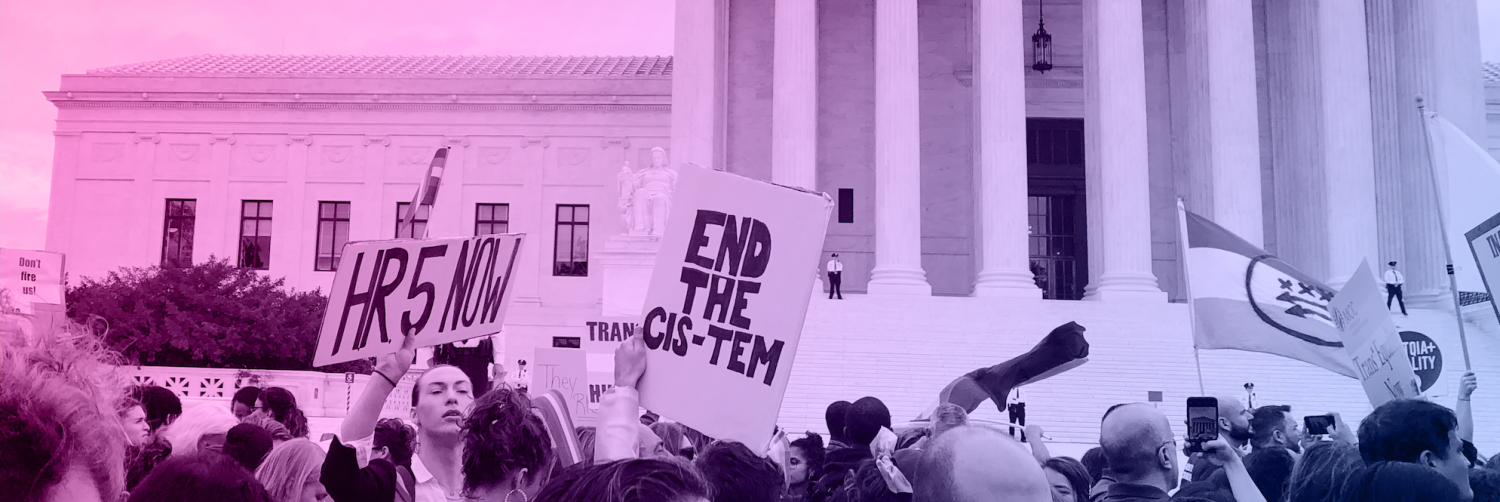Today, the U.S. Supreme Court heard oral arguments in three cases of workers that were fired because of their sexual orientation or gender identity. The Court is considering whether the provision of Title VII of the Civil Rights Act of 1964 that prohibits discrimination because of the employee’s sex, covers discrimination against gay, lesbian, bisexual, transgender, and gender nonconforming workers. The cases are Altitude Express v. Zarda, Bostock v. Clayton County and R.G. and G.R. Harris Funeral Homes v. EEOC.
“It was quite a day. After hearing the Supreme Court justices’ questions today, we are hopeful and there are many reasons to be optimistic,” said Gregory Nevins, Senior Counsel and Employment Fairness Project Director for Lambda Legal. “If the Court simply applies the law as written, LGBTQ workers win. The text of Title VII is as clear as day: if an employer refuses to hire, dismisses, or mistreats an employee ‘because of’ that employee’s sex, they are in violation of the law. In these three cases, and in so many others, LGBTQ employees have been punished simply for not conforming to the employers’ sex-based stereotypes about how they should behave or who they should be attracted to. The Court has the opportunity to set the record straight and it’s time.”
In two cases, Altitude Express v. Zarda and Bostock v. Clayton County, the Court is looking at whether Title VII ban of sex discrimination covers claims of sexual orientation discrimination. And in R.G. & G.R. Harris Funeral Homes v. EEOC, the Court is considering whether Title VII’s sex discrimination provision protects transgender workers. A growing number of courts have agreed that Title VII does indeed, prohibit discrimination on the basis of sexual orientation and gender identity. But if the Supreme Court rules against the employees, it will leave vulnerable many LGBTQ workers who don’t have local or state-level protections.
“A lot is at stake here. The Court effectively could take away rights from LGBTQ workers that have been established by multiple federal courts, confirmed by the EEOC, and accepted by the overwhelming majority of American people,” added Nevins. “We need the Court to clarify once and for all that discrimination against LGBTQ workers is unlawful sex discrimination so that people everywhere can bring their whole selves to work and not be forced to hide. If they just follow the text of the law that should be fairly easy.”
Lambda Legal has been at the center of this work for many years, serving as counsel of record in the landmark Hively v. Ivy Tech Community College before the Seventh Circuit, which was the first federal Court of Appeals to rule that Title VII protects employees from discrimination on the basis of sexual orientation, and by arguing as amicus in Zarda v. Altitude Express before the Second Circuit. We were counsel of record in Evans v. Georgia Regional Hospital in the Eleventh Circuit, and won a landmark victory on behalf of a Georgia state employee, fired for being transgender inGlenn v. Brumby, also in the Eleventh Circuit. We have briefed coverage issues in the First, Third, and Fourth Circuits, and were on the oral argument calendars of the Fifth, Eight, and Tenth Circuits in just the first five months of 2019.





